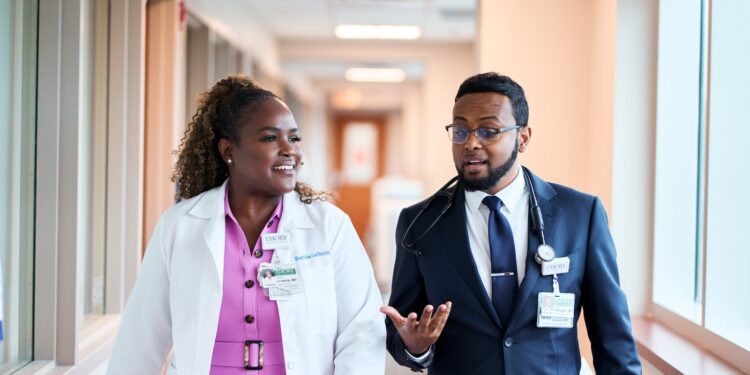Apple stands for modern, reliable technology – from the iPhone to the MacBook. A recent example from the USA demonstrates that these products play an important role not only in everyday life, but also in healthcare. At Emory Hillandale Hospital in Lithonia, Georgia, Apple devices have become an integral part of clinical operations. They are changing how medical staff work, how patients are cared for, and how well processes function. All of this is supported by the Epic healthcare software, which now also runs on Macs.
Emory Healthcare has decided to implement Apple products across the board – a move that goes beyond simply switching technology. The rollout extends beyond individual devices or apps, but encompasses Apple's entire digital ecosystem. The hospital aims to increase employee efficiency, improve communication, and restructure patient care. The transition is part of a comprehensive strategy that will evolve not only the technology but also the culture within the hospital.
Apple devices as the new standard
At Emory Hillandale Hospital, doctors and nurses now work with Macs, iPhones, iPads, and Apple Watches as standard . The desktop computers and laptops previously used have been replaced with modern Mac devices. Wards are now equipped with iMacs and Mac minis, while mobile working is enabled with MacBook Airs. This ensures that medical staff can directly access patient data and stay in touch with colleagues while on the move or during rounds.
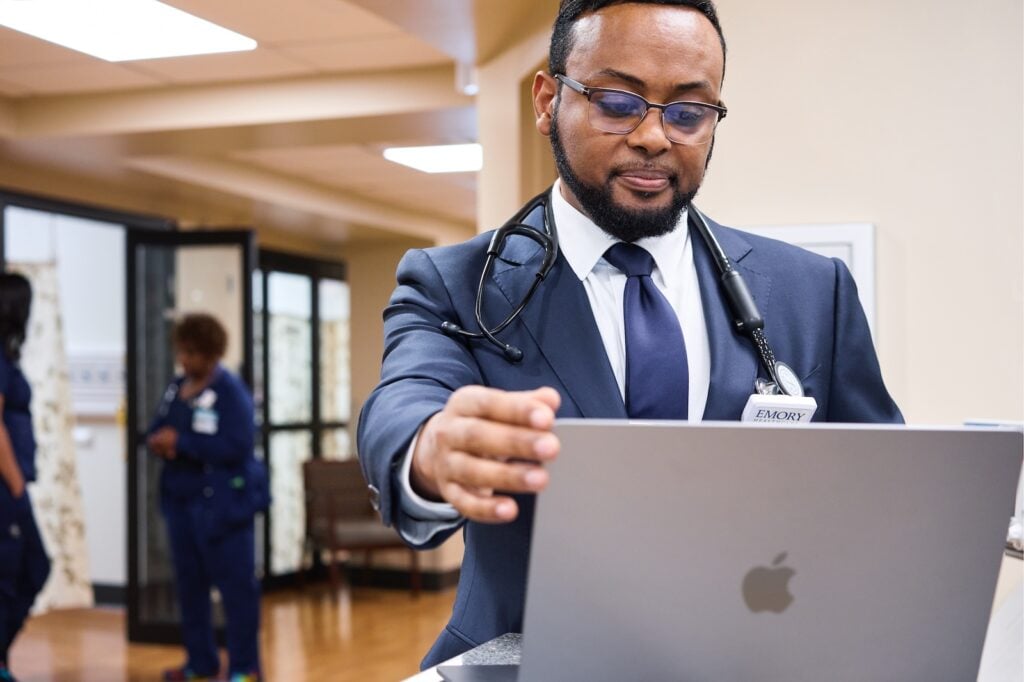
Epic Software now also on Mac
A key factor is the Epic healthcare software, which now runs entirely on Macs. This allows patient records, care plans, lab results, and other important information to be accessed quickly and securely. According to a study led by Dr. Vikram Narayan, the combination of Epic with Apple hardware has resulted in physicians saving an average of two hours per day compared to previous systems. This time can be invested directly in patient care.

Information directly in front of the patient room
Another key component of the new system are iPads magnetically attached to the outside of patient rooms. They display information such as allergies, precautions, or specific instructions in real time. This allows nursing staff to react and work better prepared before entering the room. The content is continuously updated and immediately available to everyone involved.
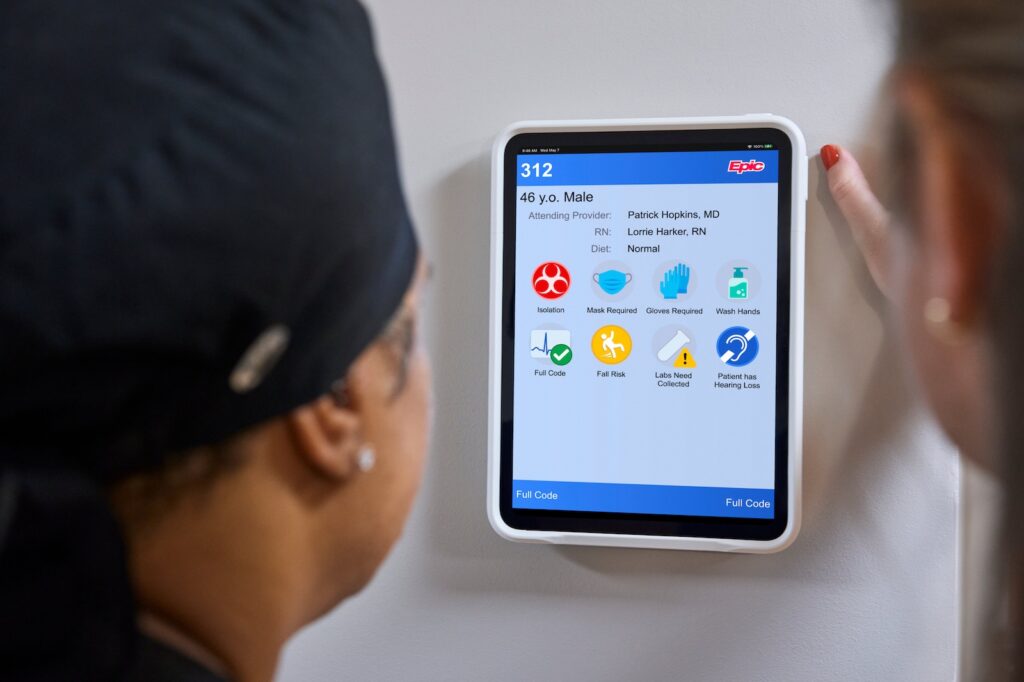
Communication via iPhone and Apple Watch
All nurses and doctors receive their own iPhone to stay in direct contact with the team. Apple Watches are also used. This allows them to respond immediately to new information or notifications. For example, Epic's Limerick app displays lab results directly on the watch. Dr. Rashida La Barrie describes how this allows her to be informed more quickly about changes and better respond to her patients' needs. For her, it's clear: This technology significantly improves care.
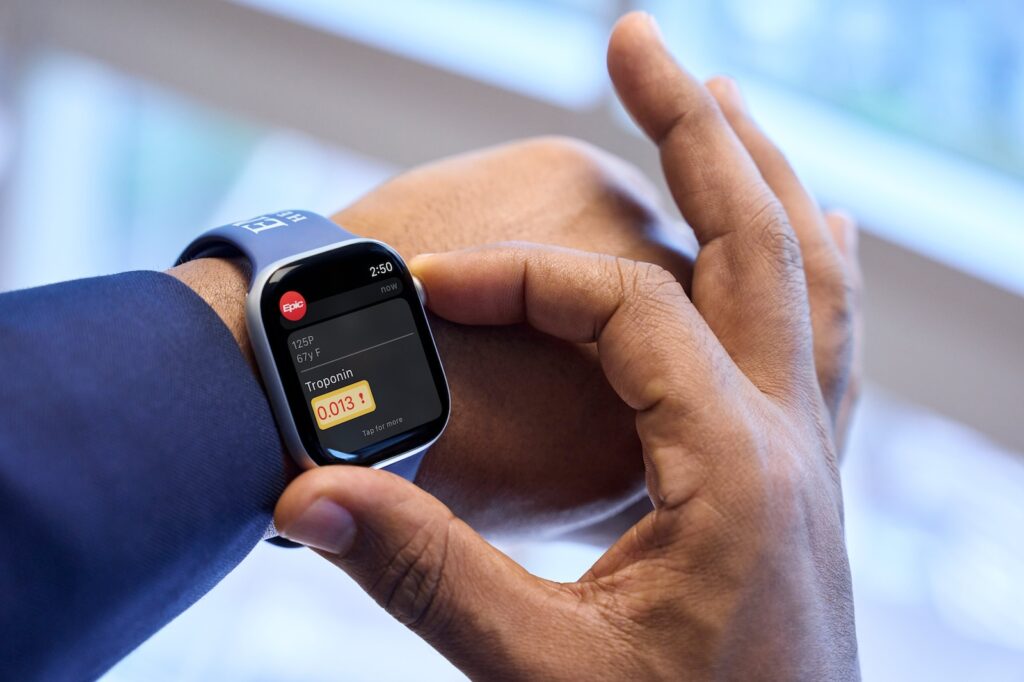
iPad at the patient bedside improves the stay
Patients also benefit from the technology. Each bed is equipped with an iPad, allowing access to their medical records via the MyChart Bedside app. Care plans, meal orders, and questions for nursing staff can be clarified directly via the device. This makes the stay more transparent and pleasant.
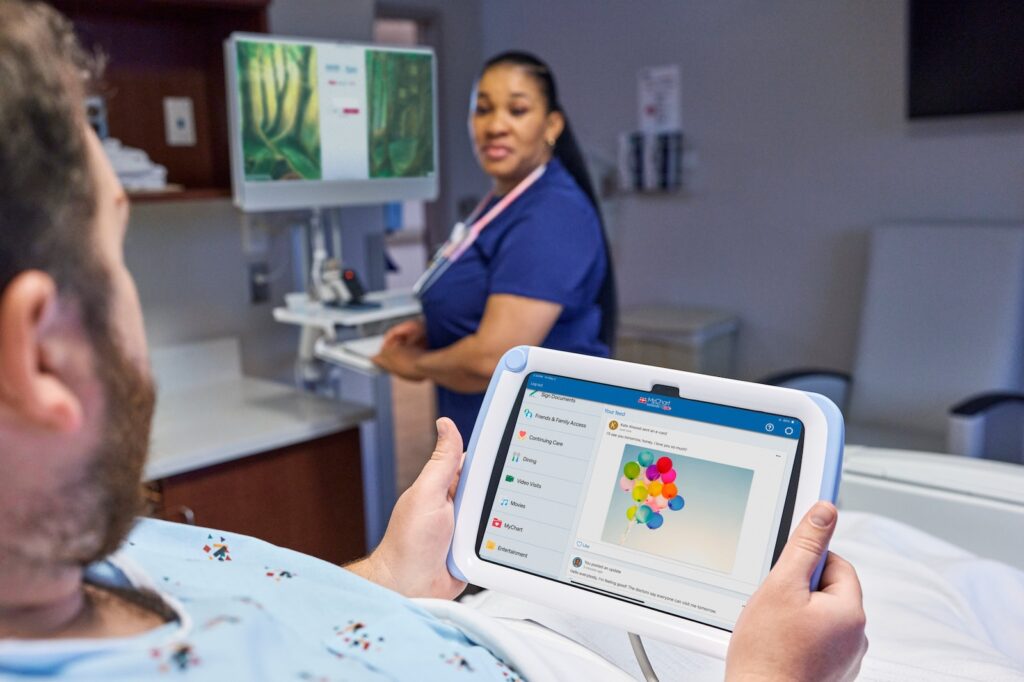
Experiences from the test run in another hospital
Before the switchover in Hillandale, the system was tested on a smaller scale at Emory Saint Joseph's Hospital. There, it quickly became apparent that nursing staff satisfaction increased. Improvements were noted in areas such as check-in time, documentation, and eye strain thanks to the iMac's Retina display. Staff retention also benefited.
Focus on data security
Data protection is a sensitive issue in healthcare. Apple has designed its devices with security and privacy at the forefront from the start. Hospitals store a lot of personal data, from medical histories to private information—an attractive target for cyberattacks. Using Apple products significantly increases the level of security and reduces the risk.
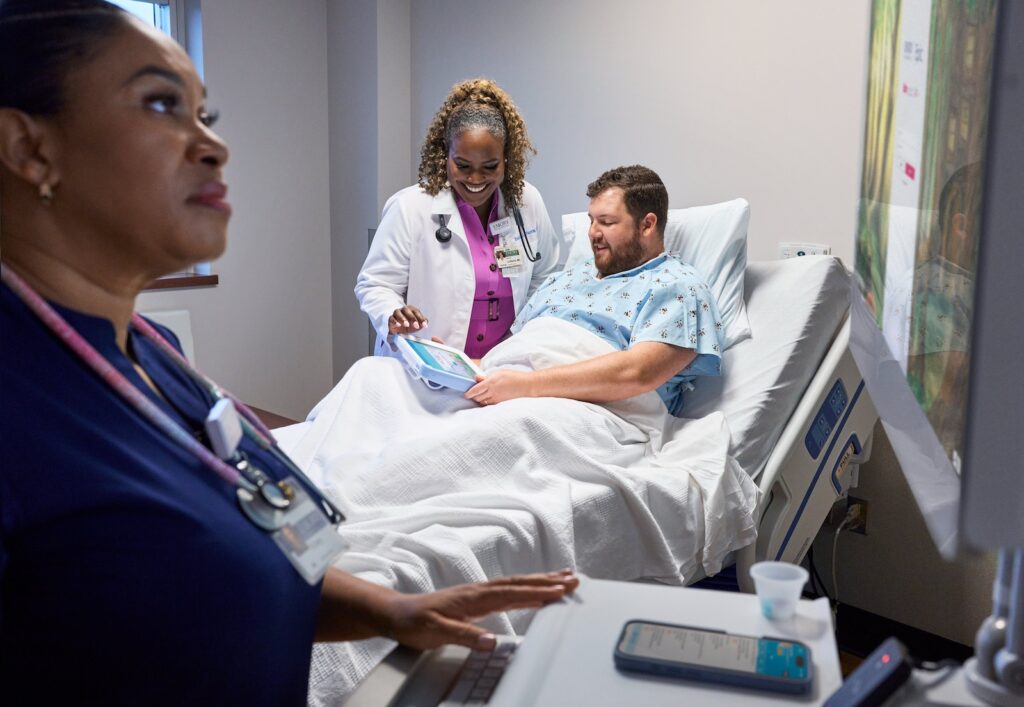
Outlook for the future
Emory Healthcare and Epic are already working on the next steps. New technologies like the Apple Vision Pro are being tested, for example, for surgical planning or medical research. Emory wants to use this to explore how augmented reality applications can be integrated into clinical practice. For Dr. La Barrie, one thing is clear: anyone working in healthcare should not only pay attention to the present, but also always keep an eye on the future.
Apple products are more than just devices – they change processes
Apple has arrived in hospitals – not just as a technical aid, but as a central element for improved processes, faster communication, and greater patient focus. Emory Hillandale Hospital demonstrates how modern technology creates tangible improvements – for both employees and patients. This example also demonstrates that digital innovations in the healthcare industry are not only possible, but urgently needed. (Image: Apple)
- OpenAI wants to complement smartphones with new AI device
- Jony Ive develops a new AI device with OpenAI

